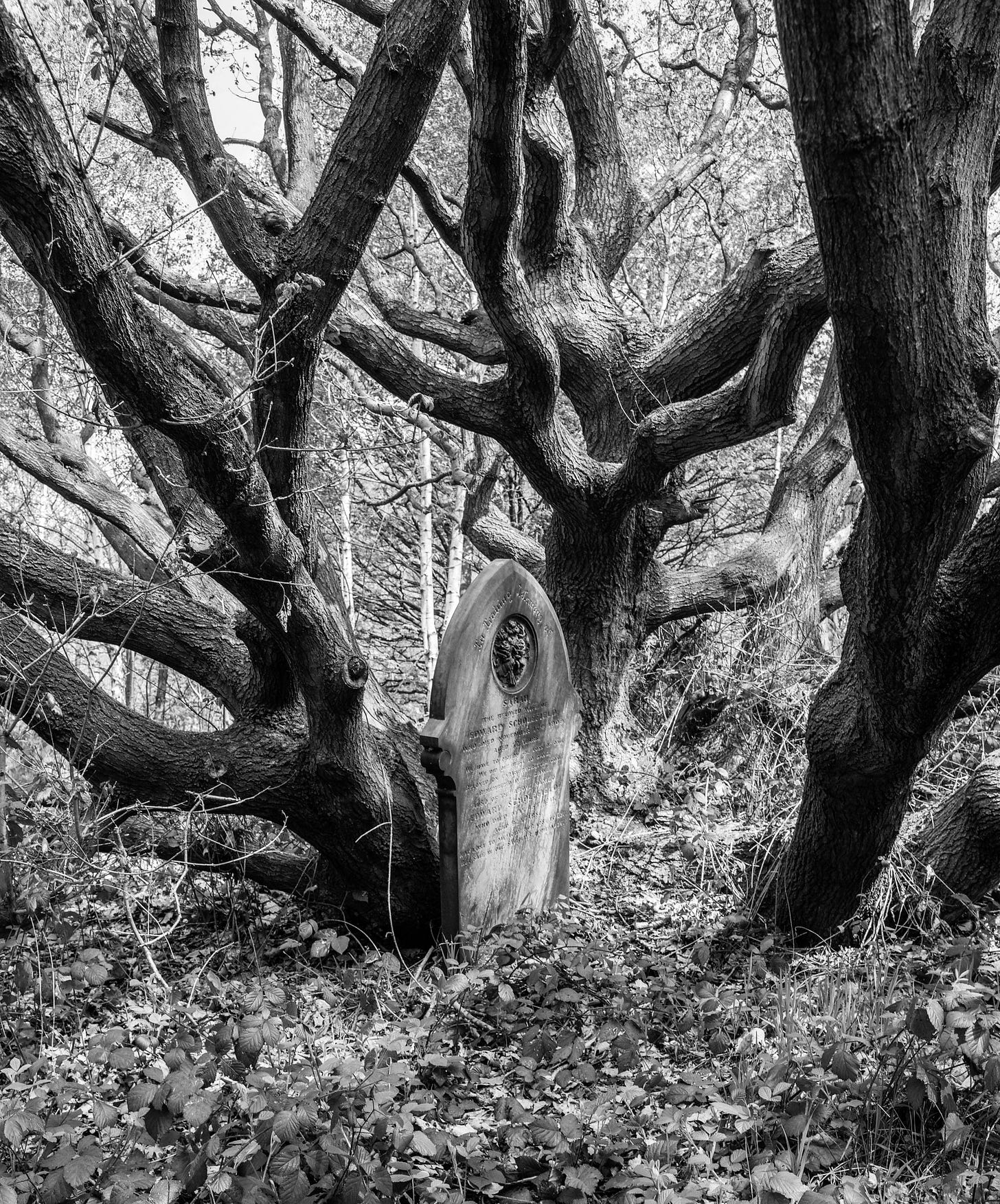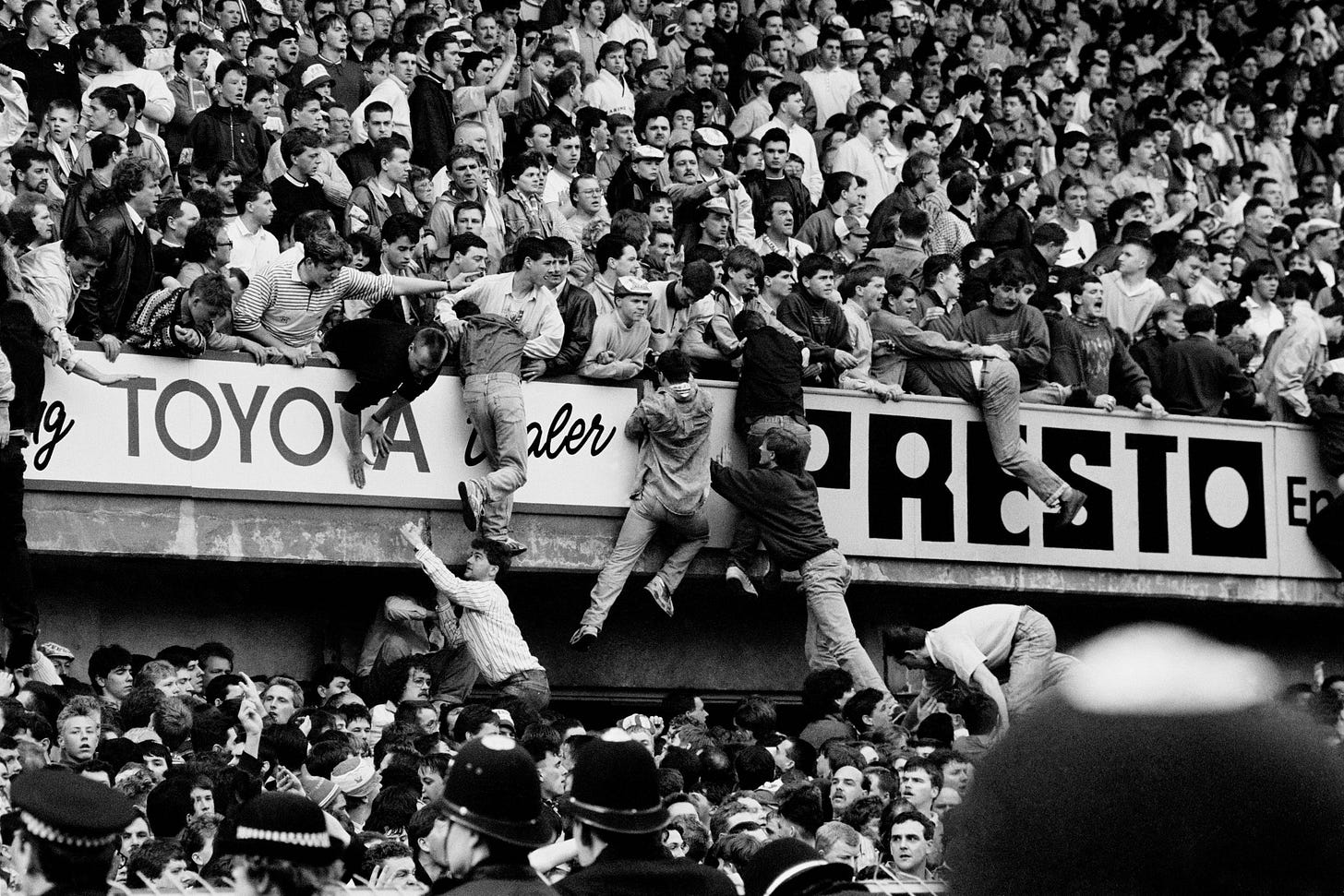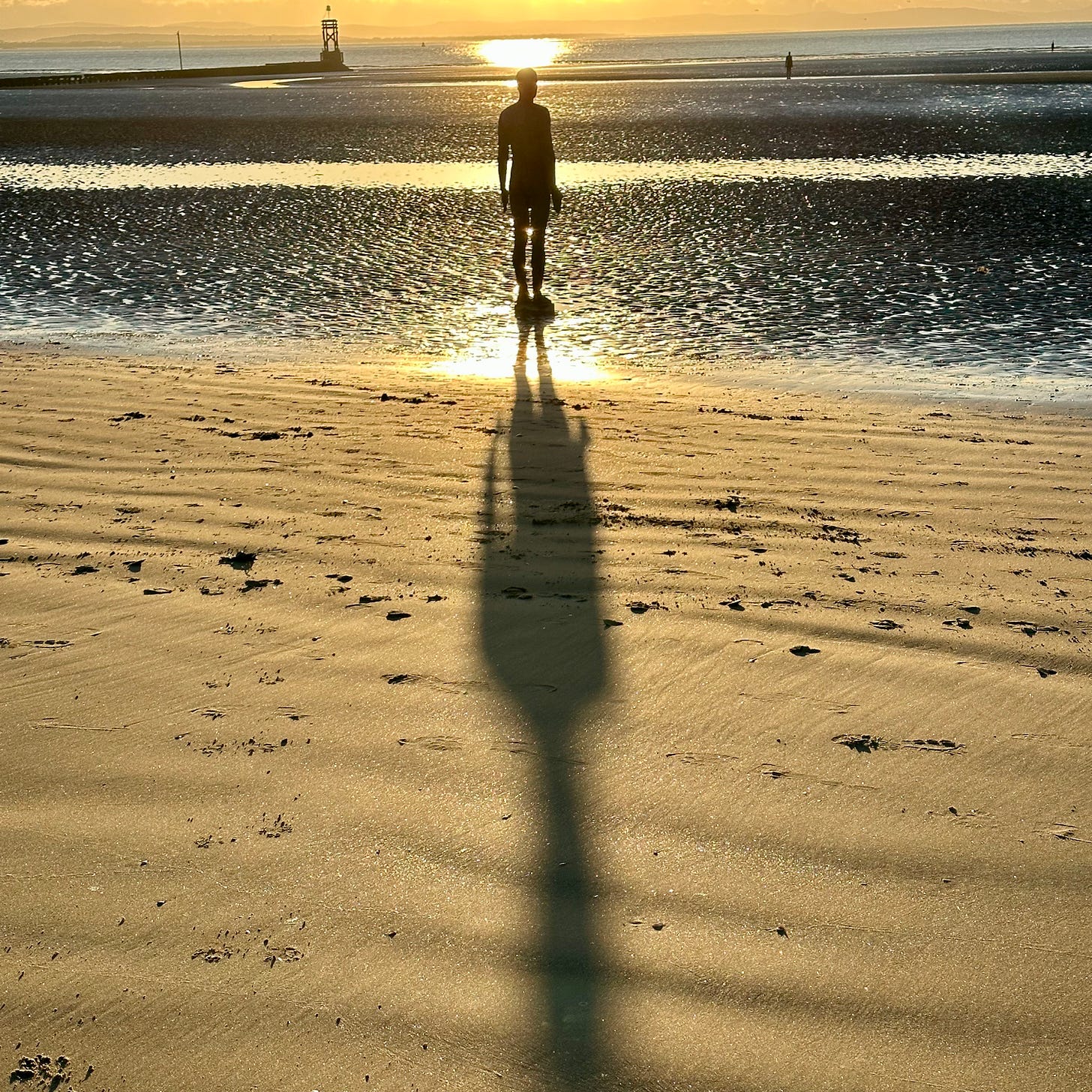The Commonwealth of the Unheard There are northern ghosts on the roads to York, their voices whisper rebellion. They were pilgrims looking for grace from a sovereign who had turned his face. They felt the north penalised, taxed from the south, their monastic health and welfare system dissolved, their lives treated with London’s courtly contempt. Their shredded pennants redden the dusk with martyr blood, the pierced forms of the clouds rent and ripped, recalling the flags pierced with nail and thorn. These spectral insistences trouble me, in each generation their shadows take shape, the sabre slaughtered in Peterloo, the suppressed Luddites, those seditious roses in red and white. Right up to the Orgreave charged and the Hillsborough slandered and denied, their presence an irrefutable request for a new settlement for the unrequited North. Under the banner of steel and coal I will travel to Cottonopolis and to the Liver Birds, to the Tyne’s bridges and the Holy Isle’s tidal causeway. From another place – a hundred on the sand gazing out to sea to the Iron Angel, on a redundant pit head, the everlasting wings. Invoking Orwell and Priestly, Top Withens and Haythornthwaite, Grasmere’s poets and the Mersey beats, vows made in me to become an itinerant northern spirit. To make a pilgrimage of grace to the commonwealth of the unheard, to catch their songs and their wonders, their lamentations and their glories. I will incarnate the whispers of sedition and inhabit an insurrected body, grinding out my poems on the wheel of my anger and the mill of my joy. ‘It was the presence of these commissioners in Lincolnshire, following the first wave of the dissolution of the monasteries, that arguably was the catalyst that unleashed the latent fear and resentment of a huge number of the king’s subjects in the North.’ Insurrection by Susan. Loughlin
This is a draft poem that I hope will form the opening salvo of a collection about the North of England. When we were recording the latest Grim Up North? Podcast on the subject of The Haunted North I thought of this poem. We were looking at the shadow side of the Northern landscape that sits behind the picturesque and the picture postcard. You can listen to Matt and I explore this below.
As an extension of this idea of the haunted North I offer the poem above. Between 1536 and 1537 there was an uprising by a number of Northern nobles led by Robert Aske and hundreds and thousands of ordinary folk. They were aggrieved at King Henry VIII for many reasons; economic, political and religious. Their welfare state, in the form of the monasteries, had been dissolved as had the faith that many adhered to. The North felt unheard. Their uprising had the unlikely name The Pilgrimage of Grace and they marched under a somewhat religious banner. (see below)
Harvests had been poor in 1535 and this added to the sense of grievance about taxes and the rapidly changing cosmopolitan South imposing its will on the more conservative North (with a small c) . This pilgrimage was brutally suppressed, the leaders were executed and many were killed.
When I read about this I felt the echoes of all those grievances from the 1500s onwards and that all these ghosts are still haunting the North. I tried to express this in my poem. So moving on from that first Pilgrimage of Grace I recalled Peterloo.
Here is what the Encyclopaedia Britannica says about it-
Peterloo Massacre, in English history, the brutal dispersal by cavalry of a radical meeting held on St. Peter’s Fields in Manchester on August 16, 1819. The “massacre” (likened to Waterloo) attests to the profound fears of the privileged classes of the imminence of violent Jacobin revolution in England in the years after the Napoleonic Wars. To radicals and reformers Peterloo came to symbolize Tory callousness and tyranny.
Then I turned to the Luddites who began in the North.
The Luddite movement began in Nottingham, England, and spread to the North West and Yorkshire between 1811 and 1816. Mill and factory owners took to shooting protesters and eventually the movement was suppressed by legal and military force, which included execution and penal transportation of accused and convicted Luddites.
Wikipedia
I bring things up towards my present and my city with the Battle or Orgreave and the Hillsborough Disaster. The first during the Miner’s Strike on June 18th 1984 when the police were deployed like the Hussars at Peterloo and charged unarmed and defenceless miners.

This battle-sharp shock troop, whiplashed
on coal men’s backs, the baton beating run,
yet walk on, pitch forward to battle for the past.
from A Lament for the Leppings Lane Lost by Adrian G R Scott
Secondly, the events we have just remembered on the 15th of April. In 1989, on that terrible day, there were 97 fatalities and 766 injuries, when too many fans were allowed into a stand that could not accommodate them. Not only was it an unacceptable and unlawful act, but the subsequent cover up by the authorities, including South Yorkshire Police made it even worse. I believe this woeful scapegoating found its genesis in what the Police got away with at Orgreave five years before.
Verdict – unlawful killing, the final redact
of Liver red in the blue pens of the overrun,
and it all bled to this pain for the Leppings Lane lost.
from A Lament for the Leppings Lane Lost by Adrian G R Scott
These are some of the unquiet spectres that haunt the North of England. They lurk in the shadowy corners into which they have been banished by the dominant narrative.
I would say that, in many ways, the podcast that I present with Matt Carr has been the beginning of this pilgrimage to the commonwealth of the unheard. In the latter part of the opening poem I invoke Anthony Gromley’s work that stands in and over our Northern Landscapes.
I want to record the voices and images of the North in the same way as I did for the city of Sheffield. I begin, therefore, with all these ghosts haunting the North!











Powerful poem and great post, Adrian. Proud to be a part of this.